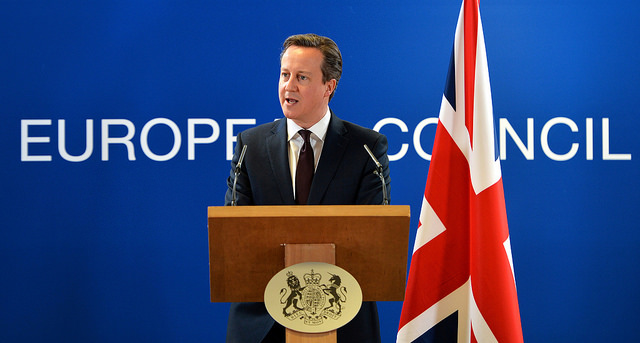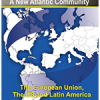
David Cameron will have to summon all his capacity for patience, as will his colleagues in the EU too. Feelings running high in the fight against the terrorism of the Islamic State (IS) and in the refugee crisis, together with Cameron’s own tardiness in submitting his proposals will make it difficult for the 28 to respond immediately to the reforms he wants in the EU and with which he hopes to win the referendum on Brexit, the UK’s staying in or withdrawing from the Union. The European Council of 17 and 18 December will not be up to deciding and this will disrupt the British PM’s timing. But he’s not asking for anything unreasonable, at least in the context of an EU that has been somewhat shaken of late.
After many months, even years, of musings and inconclusive studies, David Cameron has presented claims to the EU that are, in general, pragmatic, reasonable and in line with reality, certainly de facto although perhaps not de jure. It has a certain taste of anticlimax, something of a Shakespearean much ado about nothing, although there is actually some substance. Even so, there is some stiff resistance, especially from pro-Europeans who think the EU might unravel, not because of Brexit but because of other worrying trends that are currently on the rise.
His proposals may not go much further when presented in a more detailed and legal format. As set out in his letter to the President of the European Council, Donald Tusk, they have been badly received by the anti-Europeans in the United Kingdom Independence Party (UKIP) and in his own Conservative Party (whose support he sought to gain the party’s leadership and to whom he is bound). But, conversely, they have been welcomed by leaders (who were previously consulted) like the German Chancellor Angela Merkel, who does not want the UK to leave the EU.
Immigration. Cameron’s aim is clear: to allow fewer migrants into the UK. They have risen to new heights: 336,000 in year (to June). In his favour is the anti-immigration sentiment spreading throughout Europe. But what Cameron wants is to deny citizens from other EU countries the entitlement to full social benefits unless they have four years’ prior residence in the UK. Such a step would bring into question the sacred principle of freedom of movement for workers within the EU, and Cameron knows this will lose him the support of Poles, Czechs and Lithuanians, who sympathise with his minimalist ideas on Europe but have too many migrants to look kindly on this suggestion. The European Commission itself considers the move ‘problematic’.
An ever-closer Union. The principle, from which Cameron would like to opt out, of moving towards ‘an ever closer union between the peoples of Europe’, as defined in the treaties since Maastricht in 1992, is no longer applicable among 28. The proof is in the recurrent crises in the EU, such as the one involving refugees, although the future situation might be different. That the UK does not want to be bound by it is beside the point. The problem is that other countries that are now Eurosceptic, such as Hungary and Poland, should also want to opt out and that will be significant in a future treaty that is increasingly necessary but at the same time whose materialisation is becoming more difficult to envisage.
Relations between the Eurozone and those outside it. Clearly, to avoid a break-up, the EU must build bridges between the Eurozone and the rest, between those that are in and those that are out. The relationship between these two Europes is an important pending issue. Cameron wants the EU to be enshrined as a multicurrency Union. Nobody says it is not, but the single currency is a general goal. One problem, however, is that all except the UK and Denmark are committed to joining the euro sometime in the future, so that in the end the issue will only affect two countries (Sweden is still stalling). Nor can those without the Eurozone be given a right of veto in matters concerning it. In fact, throughout the negotiations on the Banking Union, the Eurozone has been attentive to British requirements, as the City of London is the euro’s actual financial centre, something that both Paris and Frankfurt would like to aspire to. Cameron does not want the City to be subject to financial regulations imposed from outside. In any case, the EU is moving towards a variable-geometry or multiple-speed Union, and Jean-Claude Juncker himself, President of the European Commission, has acknowledged that it will have to review its framework ‘to allow some countries to do things together and others to be less closely involved’.
Opting out of Eurozone bail-outs. Cameron would also prefer not to be called upon again to participate in the event of bail-outs, as in Greece recently, when treasuries that did not belong to the Eurozone were made to contribute. But that is a flawed approach: there may come a day when economies outside the Eurozone might have to be rescued. The Stability Mechanism was created by 28 for 28. If the IMF contributed to the bail-outs of Greece, Ireland and Portugal, why shouldn’t the UK? To draw back on this principle is to renege on the goal of solidarity, which is one of the pillars of European integration, although it is currently pretty invisible on the radar screen.
National parliaments. Cameron would like it to be possible for a group (to be determined) of national parliaments to veto European legislative proposals, but this is not very popular in Europe. There is already a ‘red card’ procedure for national parliaments faced with a proposal from the Commission, but no right of veto. Many would be happy to enhance the power and oversight of national parliaments on European issues, but specifically on the European policy of their own governments, as Juncker has recently explained. But few want to multiply the opportunity for exercising vetoes in an already highly complex institutional architecture.
The entire proposal is dressed up as a defence of the single market and of increased competitiveness, and who can disagree with that? But in a third British renegotiation of the terms of its relationship with the EU, can Cameron guarantee that it will be the last? That seems unlikely and it does not seem fair for Cameron to threaten supporting the Brexit option in the referendum he wants to convene in 2016 if he is not accommodated. The threat is political suicide. There are far more compelling arguments for permanence related to some very basic British interests, and the EU must address some of the issues raised by the British government. But it must do so because it is necessary, not in order to please the UK and prevent it from breaking away.
Downing Street is revising its targets. Cameron believes he can generate a ‘substantive’ debate at the next European Council, reaching an agreement in February and calling a referendum for the following June. It may well be that Cameron ends up gaining much of what he wants, even though that might not be enough to satisfy Britain’s Eurosceptics. Were he to demand more he would not get it and thereby lose face before his electorate. Hence, Brexit remains a real possibility, although the ‘Noes’ are currently ahead in the polls, by 52% to 48%.
If the UK finally stays in, it will do so in a slightly more detached manner, at some distance from its continental neighbours. Nevertheless, this time Britain’s Prime Minister is not just relying on economic arguments but on what the UK would lose in terms of national security, which, in case there was any doubt, will remain in national hands, as we are seeing at present.


